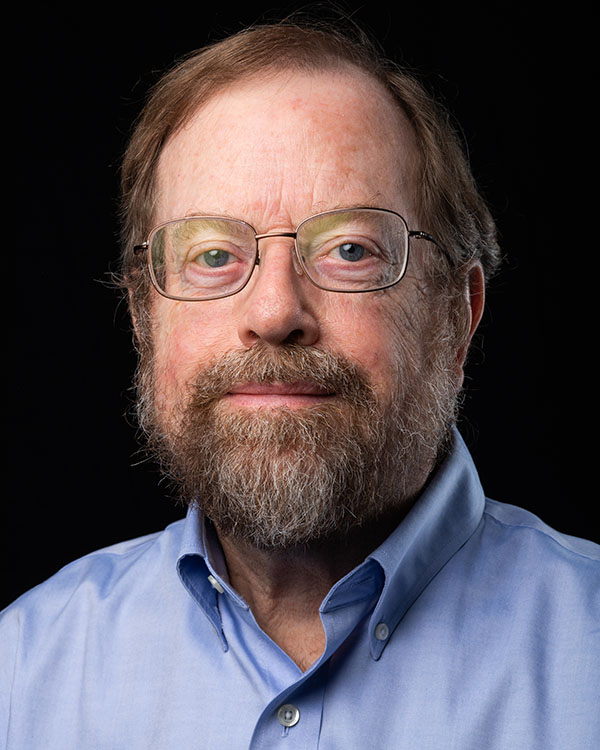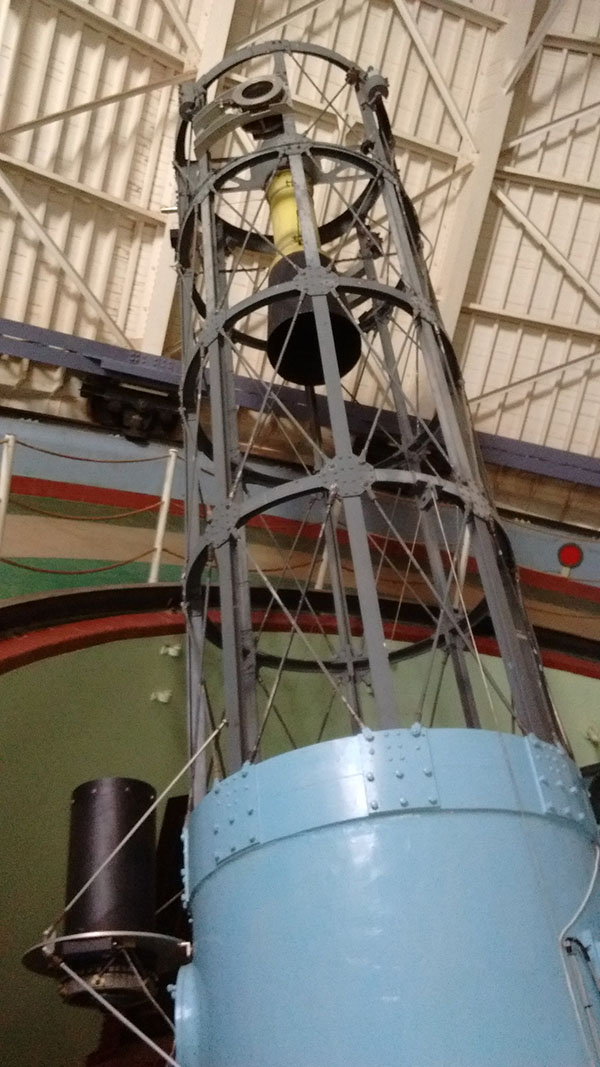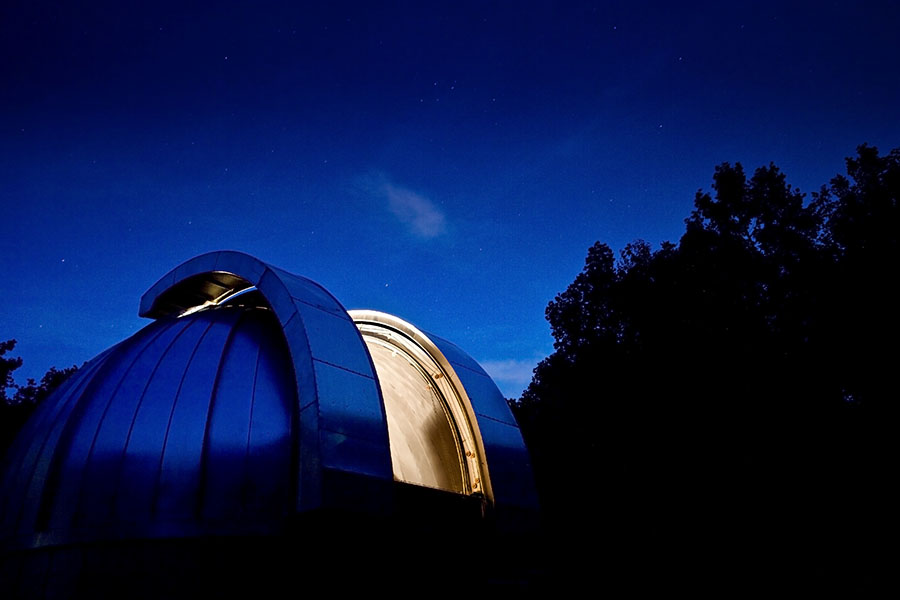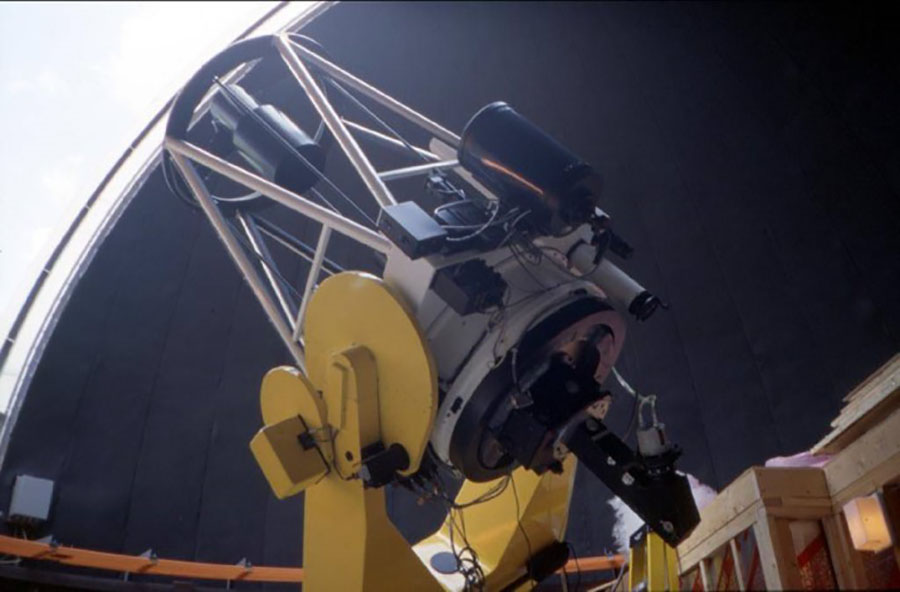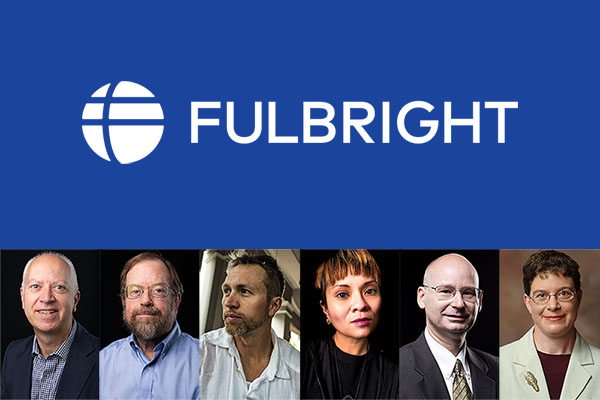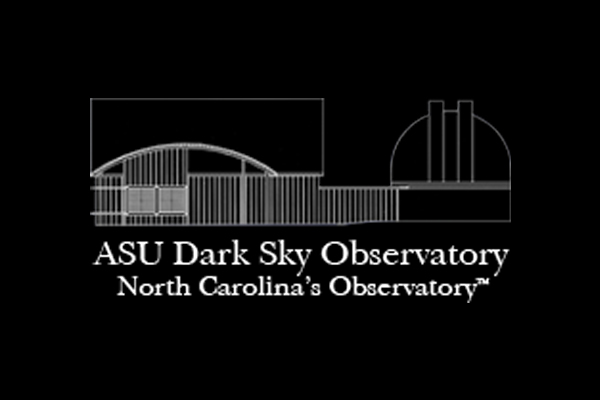BOONE, N.C. — Dr. Richard Gray, professor in Appalachian State University’s Department of Physics and Astronomy, has been awarded a grant through the Fulbright Scholar Program for his project “Uniting the Sky: An Astronomical Partnership with the University of the Free State.”
During the 2019–20 academic year, Gray is teaching two courses on astronomical spectroscopy and conducting research as a visiting professor at the University of the Free State (UFS) in South Africa.
“The technique of astronomical spectroscopy uses a spectrograph, which takes the light from the astronomical object (star, galaxy, etc.) and spreads, or disperses, that light into its component colors or spectrum,” Gray explained.
“Astronomers use the resulting spectrum to determine the properties of that astronomical object — such as its line-of-sight velocity, its temperature (in the case of a single star) or its stellar content (in the case of a galaxy) and the abundances of the chemical elements,” he said.
The Fulbright Program, established in 1946 under legislation introduced by former U.S. Sen. J. William Fulbright, is sponsored by the U.S. Department of State’s Bureau of Educational and Cultural Affairs (ECA). The program provides participants — chosen for their academic merit as well as leadership potential — the opportunity to study, teach and conduct research, exchange ideas, and contribute to finding solutions to shared international concerns. To date, approximately 370,000 “Fulbrighters” have participated in the program since its inception.
As part of his research, Gray will design and build an astronomical spectrograph for the UFS’s 1.5-meter telescope housed in the Boyden Observatory, which is located near Bloemfontein, the capital of South Africa.
“An astronomical spectrograph is an instrument, attached at the focus of a telescope, which uses an optical element, such as a prism or diffraction grating, to disperse white light into its component colors or spectrum,” Gray explained. “This allows the astronomer to make detailed studies of the astronomical object being observed.”
He said the collaboration with UFS will include access to the Boyden telescope for Appalachian astronomers and reciprocal access by UFS astronomers to the 32-inch research telescope at the Dark Sky Observatory, making “the entire sky accessible to astronomers at both institutions.”
“Long-term benefits for both of our institutions will be collaborative research in other STEM fields, faculty and student exchanges and opportunities for training a new generation of astronomers at both institutions, drawing especially from underrepresented groups in Appalachia and South Africa,” Gray explained.
Gray holds a B.A. in mathematics from Washington State University. He earned both his M.S. and Ph.D. in astronomy from the University of Toronto.
During his time at Appalachian, Gray has designed and constructed four astronomical spectrographs, three of which are in use in telescopes in the Dark Sky Observatory and one that is used for the 16-inch telescope in the university’s Rankin Science Observatory.
At Appalachian, he teaches courses in environmental and computational physics, thermal physics, techniques of astronomical spectroscopy, astrophysics, planets and exoplanets and computational astronomy.
His research is in the field of stellar spectroscopy, with interests that include the discovery and classification of chemically peculiar stars, Lambda Bootis stars in particular, which is a group of stars that show marked low abundance, or unusually low abundance of iron peak elements in their surface layers.
In addition to his research on Lambda Bootis stars, Gray monitors a set of young solar analogs (YSAs) in an effort to learn more about the space environment of the Earth when life was first forming nearly 4 billion years ago.
He is a member of the International Astronomical Union and American Astronomical Society, and is a fellow of the Royal Astronomical Society. He is also an international collaborator on the LAMOST-Kepler project, which is obtaining spectra of tens of thousands of stars using the Chinese LAMOST spectroscopic telescope in the Kepler field.
What do you think?
Share your feedback on this story.
About the Department of Physics and Astronomy
The Department of Physics and Astronomy’s curriculum has an applied nature that includes a core of fundamental physics courses and laboratory experiences. The department prepares graduates for a variety of scientific, teaching or engineering professions, as well as future educational endeavors. Learn more at https://physics.appstate.edu.
About the College of Arts and Sciences
The College of Arts and Sciences (CAS) at Appalachian State University is home to 17 academic departments, two centers and one residential college. These units span the humanities and the social, mathematical and natural sciences. CAS aims to develop a distinctive identity built upon our university's strengths, traditions and locations. The college’s values lie not only in service to the university and local community, but through inspiring, training, educating and sustaining the development of its students as global citizens. More than 6,800 student majors are enrolled in the college. As the college is also largely responsible for implementing App State’s general education curriculum, it is heavily involved in the education of all students at the university, including those pursuing majors in other colleges. Learn more at https://cas.appstate.edu.
About Appalachian State University
As a premier public institution, Appalachian State University prepares students to lead purposeful lives. App State is one of 17 campuses in the University of North Carolina System, with a national reputation for innovative teaching and opening access to a high-quality, cost-effective education. The university enrolls more than 21,000 students, has a low student-to-faculty ratio and offers more than 150 undergraduate and 80 graduate majors at its Boone and Hickory campuses and through App State Online. Learn more at https://www.appstate.edu.
